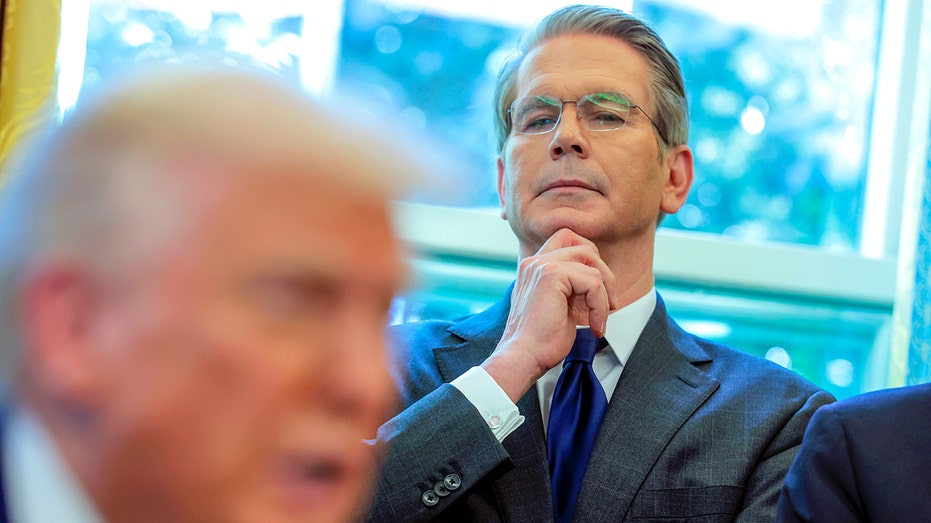

President Donald Trump said Tuesday he plans to meet with Chinese President Xi Jinping in the near future, as the world’s two largest economies approach a looming tariff deadline.
"President Xi has invited me to China and we'll probably be doing that in the not-too-distant future," Trump said during a bilateral meeting with Philippine President Ferdinand Marcos at the White House. "A little bit out, but not too distant."
Treasury Secretary Scott Bessent is set to visit Stockholm at the end of July for two days of trade talks with his Chinese counterpart. Bessent led trade negotiations with the Chinese in Geneva in May and a month later in London.

Treasury Secretary Scott Bessent is set to visit Stockholm at the end of July for two days of trade talks with his Chinese counterpart. (Anna Moneymaker / Getty Images)
In mid-May, Washington and Beijing agreed to a 90-day suspension on some of the heaviest tariffs lobbed on each other's goods. That suspension is set to expire Aug. 12.
During an interview on FOX Business, Bessent said the U.S. will "be working out what is likely an extension" of the tariff deadline.
Trump has raised tariffs on all Chinese goods several times since taking office in January, with the highest duty reaching 145% in April. The current U.S. levy on most Chinese imports stands at 30%.
Meanwhile, American goods imported by China face a 10% duty.

President Donald Trump and Chinese President Xi Jinping (Anna Moneymaker/Mauro Pimentel/AFP / Getty Images)
Bessent reiterated that the Trump administration also will single out China’s dependence on Iranian and Russian oil in the upcoming trade discussions.
Washington has long complained that Iran and Russia use the funds from oil exports to finance terror and other destabilizing actions around the world. Despite U.S. sanctions, Beijing is the top importer of Iranian oil and the second-largest importer of Russian oil.
In addition to Russian and Iranian oil imports, Bessent also said the U.S. wants to curb China's status as the world's manufacturing powerhouse. He previously has called on China to limit its massive export economy and increase its participation as a global trade import partner.
"President Donald Trump has changed the narrative here, that tariffs can be used for negotiations away from just economics but for world peace," Bessent said.
Swedish Prime Minister Ulf Kristersson welcomed both delegations to Stockholm in a Tuesday post on X.
"It is positive that both countries are willing to meet in Sweden to seek mutual understanding," Kristersson wrote.
"The talks primarily concern the relationship between the U.S. and China, but they also carry great significance for global trade and the economy," he added.
